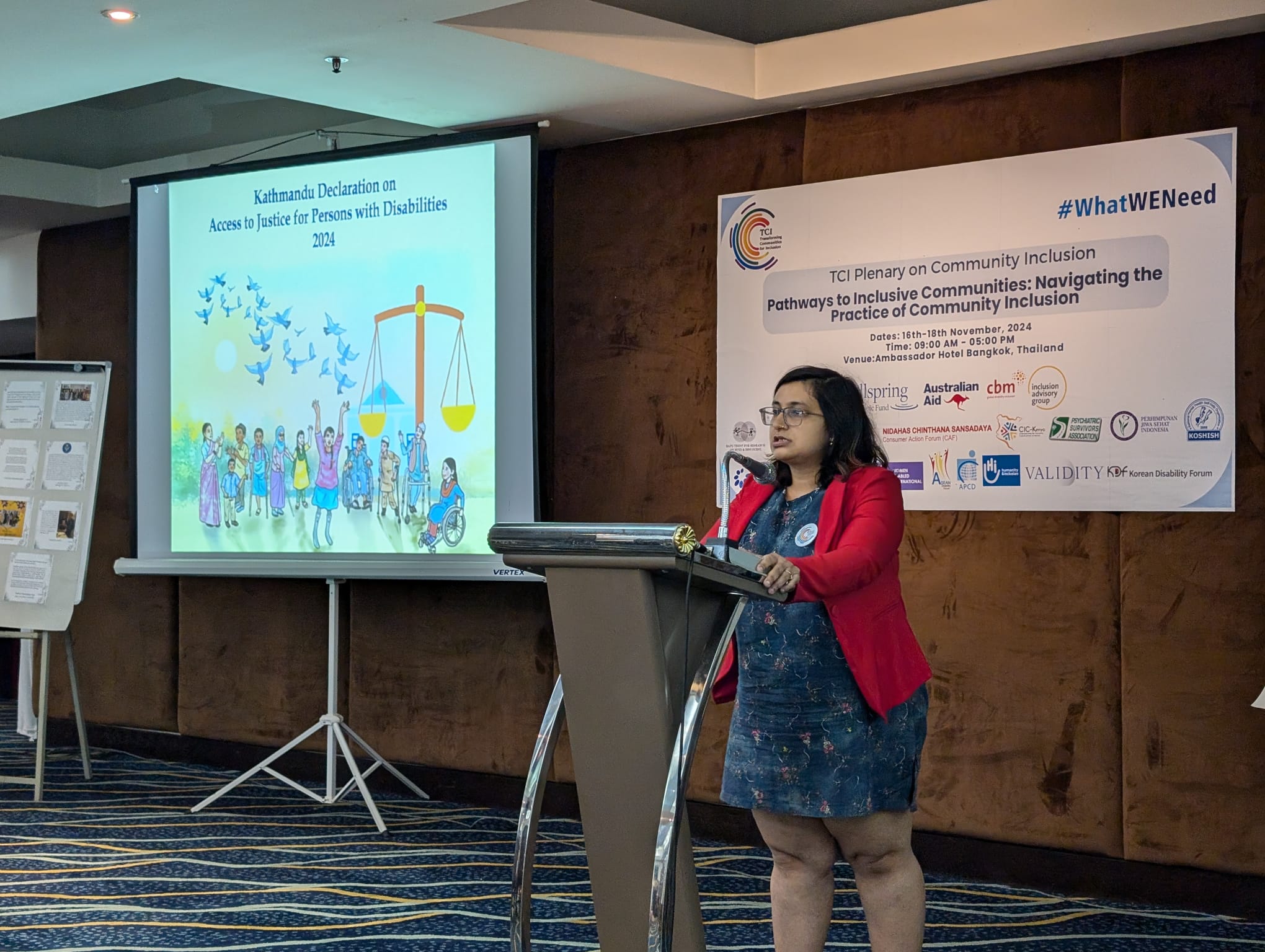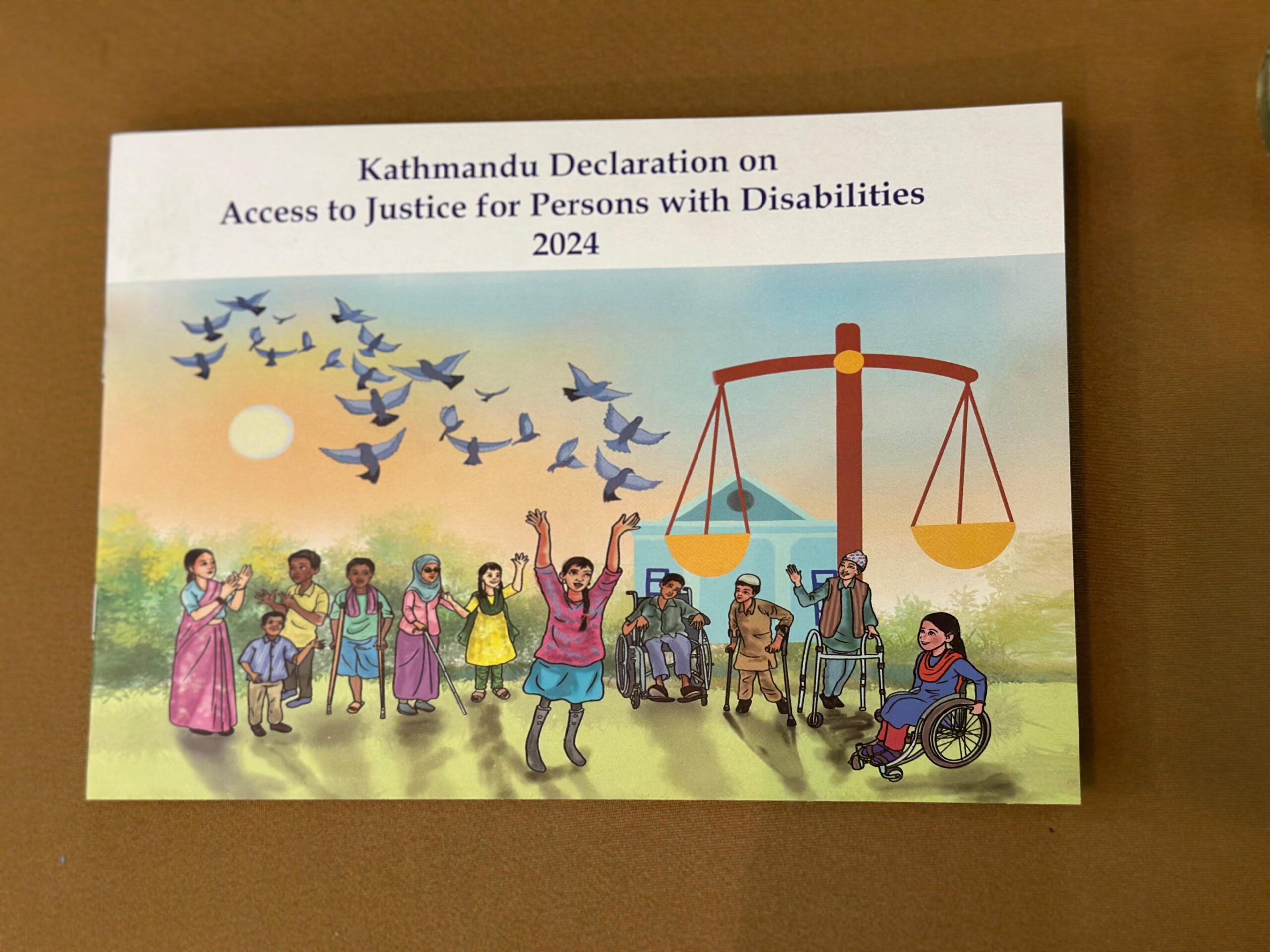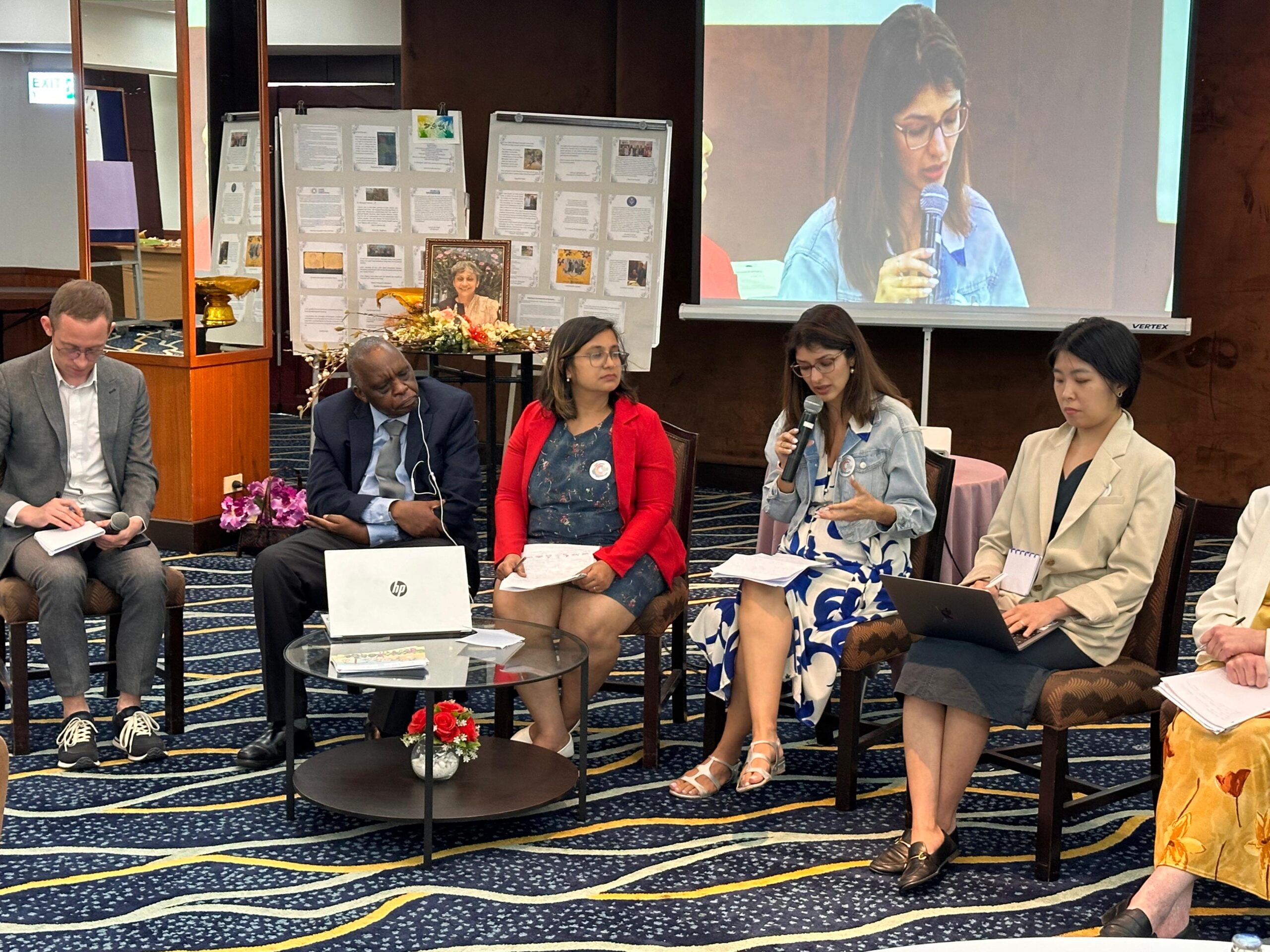On 18 November, the International Commission of Jurists (ICJ) together with Transforming Communities for Inclusion (TCI) and in collaboration with KOSHISH and Nepal Disabled Women’s Association launched the Kathmandu Declaration on Access to Justice for Persons with Disabilities in Bangkok.
The Declaration, which was elaborated by the ICJ and TCI, in consultation with other advocates including organization of persons with disabilities, calls on States in the region to take immediate action to improve access to justice for persons with disabilities.
The Declaration was developed to foster legal and policy reform in the Asia region, where countries have adopted and perpetuated discriminatory and medicalized approaches to disability, embedded in laws, policies and practices. They fail to provide for equal protection of the rights of persons with disabilities, drastically curtailing their access to justice.
The Bangkok launch event, hosted by TCI, brought together more than 100 participants, including members of the UN Committee on the Rights of Persons with Disabilities (CRPD Committee), government officials from Thailand, persons with disabilities acting as advocates, civil society organizations representing persons with disabilities, lawyers and other justice actors, and representatives of different UN agencies around the globe.
Commenting on the Declaration, ICJ Legal Adviser Karuna Parajuli stressed that:
“Many States in Asia are failing to fully protect the rights of persons with disabilities to access justice. This is a particularly acute problem in respect of persons with psychosocial disabilities. It remains common practice for laws and policies claiming to protect mental health to force persons with psychosocial disabilities to be treated and be confined to institutions based solely on their disability.”
The Declaration was elaborated in part at a conference co-hosted by the ICJ in Kathmandu in May 2024, where participants revealed that a number of laws common to many Asia-Pacific countries, including mental health laws, serve to strip persons with psychosocial disabilities of legal capacity. Lack of legal capacity prevents them from participating fully in legal proceedings and processes, often leads to their institutionalization.
“Institutionalization as a global problem is a form of denial of legal capacity that results to violation of different other human rights like coercion, torture, abuses and segregation of the person with disabilities”, said Dr Samueal Njuguna Kabue CRPD Committee member, at the launch event.
“The CRPD Committee’s General comment No. 1 on Article 12 of CRPD, makes it clear that deinstitutionalization cannot be affirmed without recognition of the legal capacity of persons with disabilities”, he added.


The declaration is available for download in English, Nepali
Contact:
Karuna Parajuli, ICJ Asia and the Pacific Programme’s Legal Adviser, e: karuna.parajuli@icj.org
Wilson Macharia, ICJ Africa Programme’s Legal Adviser, e: wilson.macharia@icj.org
Timothy Fish Hodgson, ICJ Africa Programme’s Senior Legal Adviser, ESC Rights, e: timothy.hodgson@icj.org
Background
The Declaration highlights a range of systemic failures within legal systems in Asia-Pacific countries which contribute to the denial of access to justice, including:
- inappropriate definitions and understandings of disability, which treat disability as a “defect” or “disease” and persons with disabilities to be passive recipients of “care”;
- failure by States to recognize the legal capacity of persons with disabilities in both criminal and civil context;.
- continued exclusion of persons with disabilities from full and effective participation in legal processes and procedures, including through rules that determine “fitness to plead”, “fitness to stand trial” or “insanity”;
- failure to provide procedural accommodations required by persons with disabilities to participate fully in legal processes and procedures;
- the application of laws, including mental health laws, which allow for forced treatment and institutionalization based on disability; and
- failure to take sufficient steps towards securing the deinstitutionalization of persons with disabilities.
The Declaration contains a number of recommendations to States with a view to facilitating their compliance with the CRPD and access to justice for persons with disabilities. These include calls on States to:
- apply a human rights-based approach to and understanding of disability in interactions between persons with disabilities and the justice sector;
- full recognize the right to legal capacity of persons with disabilities in all contexts in compliance with the CRPD;
- take steps to deinstitutionalize persons with disabilities, including those institutionalized in mental health institutions based on their disabilities;
- develop, finance and strengthen community-based support systems and support services for persons with disabilities;
- in full consultation with persons with disabilities, reform healthcare systems including by reviewing and amending or repealing mental health laws and policies to bring them in line with the CRPD;
- remove barriers to access justice, including through the provision of procedural accommodations and supports, to persons with disabilities who interact with the justice system in accordance with their will and preference;
- provide training for justice actors, including judges, so that they understand and can apply laws and policies consistently with the CRPD.
The ICJ engages with judiciaries, national human rights institutions, persons with disabilities and OPDs around the world on access to justice for persons with disabilities. This includes facilitating dialogues on access to justice for persons with disabilities, collaborating with and advising the OPDs in capacity building and legal reform.
The ICJ participated in the drafting of, and formally endorsed the International Principles and Guidelines on Access to Justice for Persons with Disabilities, elaborated by the former UN Special Rapporteur on the Rights of Persons with Disabilities.
On 11-12 May, 2024, the ICJ co-hosted a regional convening on access to justice for persons with disabilities, in Kathmandu, Nepal, together with the Nepal Disabled Women’s Association (NDWA) and KOSHISH. The event was held in collaboration with Transforming Communities for Inclusion (TCI), an organization working globally on the rights of persons with psychosocial disabilities. This Declaration builds on the discussions that took place in this regional workshop.
The Declaration is aimed at promoting the protection of rights guaranteed under international human rights law, particularly the CRPD, including the rights to: non-discrimination (Article 5); accessibility (Article 9); equal recognition before the law (Article 12); access to justice (Article 13); liberty and security (Article 14), freedom from torture or cruel, inhuman or degrading treatment or punishment (Article 15), freedom from exploitation, violence and abuse (Article 16) and living independently and being included in the community (Article 19).





